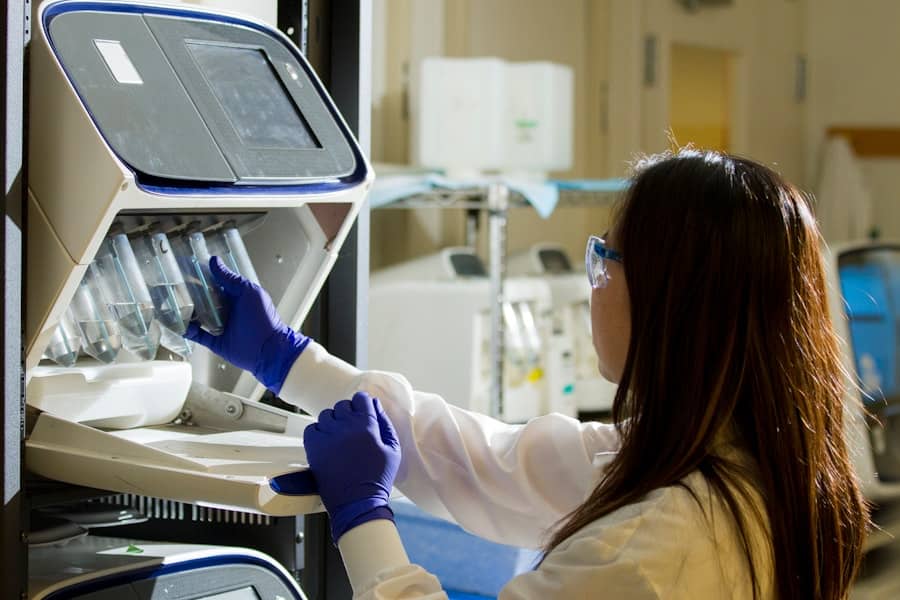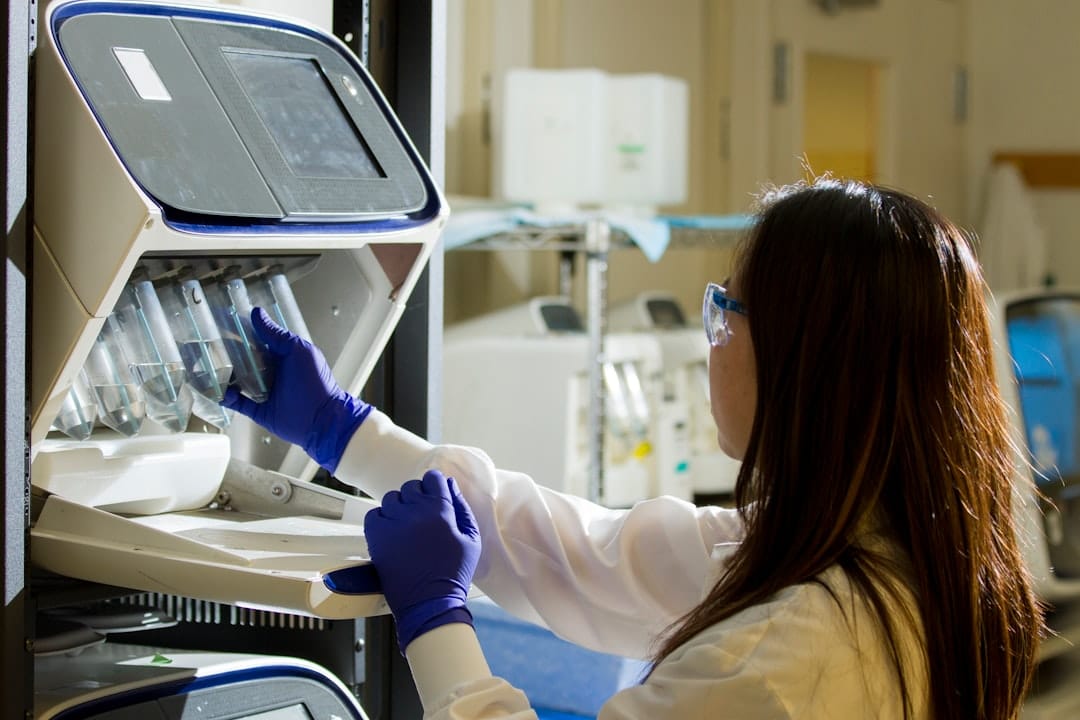The intersection of biotechnology and space exploration is a burgeoning field that holds immense potential for advancing our understanding of human health in extraterrestrial environments. As humanity embarks on ambitious missions to Mars and beyond, the need to ensure the health and well-being of astronauts becomes paramount. Biotech plays a crucial role in this endeavor, providing innovative solutions to the unique challenges posed by space travel.
From understanding the biological effects of microgravity to developing targeted therapies and nutritional strategies, biotechnology is at the forefront of ensuring that humans can thrive in space. Biotechnology encompasses a wide range of scientific disciplines, including genetics, molecular biology, and bioinformatics, all of which contribute to our understanding of how the human body responds to the harsh conditions of space. The insights gained from this research not only enhance our ability to protect astronauts during long-duration missions but also have implications for healthcare on Earth.
As we delve deeper into the complexities of space health research, it becomes evident that biotech is not merely an ancillary component; it is a foundational pillar that supports the entire framework of astronaut health and performance.
Key Takeaways
- Biotech plays a crucial role in addressing health challenges posed by microgravity in space.
- Innovations in biotechnology enable the development of specialized medications for astronauts.
- Biotech advances contribute to creating tailored nutritional solutions to support space missions.
- Monitoring and managing health risks in space is enhanced through biotech tools and techniques.
- The future of space health research heavily relies on continued biotech innovation and development.
The Impact of Microgravity on Human Health
Microgravity presents a unique set of challenges that can significantly impact human physiology. In a weightless environment, the body undergoes various adaptations that can lead to detrimental health effects. For instance, studies have shown that astronauts experience muscle atrophy and bone density loss due to the lack of gravitational forces acting on their bodies.
The muscles and bones that are typically engaged in resisting gravity weaken over time, leading to a condition akin to osteoporosis. This phenomenon raises concerns about the long-term health of astronauts on extended missions, such as those planned for Mars. Additionally, microgravity affects fluid distribution within the body, leading to changes in cardiovascular function.
These changes can impair vision and overall cognitive function, posing significant risks during critical mission operations. Understanding these physiological changes is essential for developing countermeasures that can mitigate their effects and ensure that astronauts remain healthy and capable throughout their missions.
Biotech Innovations for Space Health Research

Biotechnology has ushered in a new era of innovations aimed at addressing the health challenges posed by space travel. One notable advancement is the development of bioreactors that can simulate microgravity conditions on Earth. These bioreactors allow researchers to study cellular responses to microgravity without the need for actual spaceflight.
By examining how cells behave in these simulated environments, scientists can gain insights into the mechanisms underlying muscle atrophy, bone loss, and other health issues faced by astronauts. Moreover, genetic engineering techniques are being employed to create modified organisms that can thrive in space conditions. For example, researchers are exploring the use of genetically modified plants that can grow in microgravity while providing essential nutrients for astronauts.
These plants could serve as a sustainable food source during long missions, reducing reliance on pre-packaged meals and enhancing the overall nutritional profile of an astronaut’s diet. Such innovations not only address immediate health concerns but also pave the way for future exploration by enabling self-sustaining ecosystems in space.
The Importance of Biotech in Developing Space Medications
The development of effective medications for use in space is another critical area where biotechnology plays a vital role. The unique environment of space can alter drug metabolism and efficacy, necessitating tailored pharmaceutical solutions for astronauts. Biotech companies are actively engaged in researching how drugs behave in microgravity and how they can be optimized for use during space missions.
One example is the investigation into the stability and effectiveness of vaccines in space. Vaccination is essential for protecting astronauts from infectious diseases during long missions, but the conditions of space travel may affect vaccine potency. Biotech researchers are exploring ways to enhance vaccine formulations to ensure they remain effective even under the stressors of microgravity.
This research not only benefits astronauts but also has implications for vaccine development on Earth, particularly in remote or resource-limited settings.
Biotech’s Contribution to Nutritional Solutions for Astronauts
| Metric | Description | Value / Data | Source / Notes |
|---|---|---|---|
| Number of Biotech Space Health Projects | Ongoing research projects focused on biotech applications in space health | 45 | NASA Space Biology Program (2023) |
| Key Biotech Areas | Primary biotech fields contributing to space health research | Genomics, Synthetic Biology, Tissue Engineering, Microbiome Studies | Review of recent publications (2022-2024) |
| Average Duration of Space Health Experiments | Typical length of biotech experiments conducted in microgravity | 3-6 months | ISS Research Database |
| Microgravity Effects Studied | Biological effects analyzed in space health biotech research | Bone density loss, Muscle atrophy, Immune system changes, Radiation impact | NASA Human Research Program |
| Number of Published Papers (2020-2024) | Scientific articles published on biotech in space health | 120+ | PubMed and NASA archives |
| Biotech Companies Involved | Number of biotech firms collaborating on space health projects | 15 | Industry reports 2023 |
| Funding Allocated to Space Biotech Health Research | Annual funding dedicated to biotech research in space health | Approx. 80 million | Government and private sector combined (2023) |
| Notable Space Health Biotech Innovations | Examples of biotech breakthroughs for astronaut health | 3D Bioprinted tissues, Personalized medicine platforms, Microbiome modulation therapies | Recent NASA and ESA reports |
Nutrition is a cornerstone of astronaut health, and biotechnology is playing an increasingly important role in developing tailored nutritional solutions for space travelers.
Biotech innovations are addressing these challenges by creating nutrient-rich food products that can withstand the rigors of space travel.
One promising area of research involves the use of cultured meat and plant-based proteins as sustainable food sources for astronauts. These products can be engineered to provide essential amino acids, vitamins, and minerals while minimizing waste and environmental impact. Additionally, advancements in food preservation techniques, such as freeze-drying and vacuum sealing, are being enhanced through biotechnological methods to ensure that meals retain their nutritional value over extended periods.
The Role of Biotech in Monitoring and Managing Space Health Risks

Monitoring astronaut health during missions is critical for identifying potential health risks early and implementing appropriate interventions. Biotechnology offers advanced tools for real-time health monitoring through wearable devices that track vital signs and physiological parameters. These devices can provide continuous feedback on an astronaut’s health status, allowing mission control teams to respond promptly to any emerging issues.
Furthermore, biotech research is focused on developing biomarkers that can indicate changes in an astronaut’s health due to microgravity exposure. By analyzing blood samples or other biological materials, scientists can identify specific markers associated with muscle degradation, bone loss, or cardiovascular stress. This information is invaluable for tailoring countermeasures and ensuring that astronauts receive timely medical support when needed.
Future Prospects for Biotech’s Role in Space Health Research
The future prospects for biotechnology’s role in space health research are promising and multifaceted. As space agencies like NASA and private companies like SpaceX continue to push the boundaries of human exploration beyond Earth, the demand for innovative biotech solutions will only grow. One area ripe for exploration is the potential for personalized medicine in space.
Advances in genomics could enable researchers to tailor medical interventions based on an astronaut’s genetic profile, optimizing their health outcomes during missions. Additionally, as we look toward longer-duration missions to Mars or even beyond, the development of closed-loop life support systems will become increasingly important. These systems would rely on biotechnological innovations to recycle waste products into usable resources, such as food or oxygen.
By creating self-sustaining ecosystems that mimic Earth’s biosphere, we can enhance the feasibility of long-term human presence in space.
The Promising Future of Biotech in Space Health Research
The integration of biotechnology into space health research represents a transformative approach to addressing the unique challenges faced by astronauts during their missions. From understanding the physiological impacts of microgravity to developing tailored medications and nutritional solutions, biotech innovations are paving the way for safer and healthier space exploration. As we continue to explore the cosmos, it is clear that biotechnology will play an indispensable role in ensuring that humans can thrive beyond our planet, unlocking new frontiers not only in space but also in our understanding of human health on Earth.
In the context of exploring the intersection of biotechnology and space health research, it’s fascinating to consider how technology is evolving in various fields. For instance, the article on how smartwatches are revolutionizing the workplace highlights the integration of health monitoring technologies that could play a crucial role in maintaining astronaut well-being during long missions. You can read more about this innovative technology in the article here.
FAQs
What is the role of biotechnology in space health research?
Biotechnology plays a crucial role in space health research by developing medical technologies, treatments, and biological solutions to address the unique health challenges faced by astronauts during space missions. This includes studying the effects of microgravity on the human body, developing countermeasures for bone density loss, muscle atrophy, and radiation exposure, and creating advanced diagnostic and therapeutic tools.
Why is space health research important?
Space health research is important because it helps ensure the safety and well-being of astronauts during long-duration space missions. Understanding how space conditions affect human physiology enables the development of effective medical interventions, which is essential for future deep space exploration, including missions to Mars and beyond.
How does microgravity affect human health?
Microgravity affects human health by causing muscle atrophy, bone density loss, fluid redistribution, and changes in cardiovascular function. It can also impact the immune system and increase vulnerability to radiation. Studying these effects helps researchers develop strategies to mitigate health risks in space.
What types of biotechnologies are used in space health research?
Biotechnologies used in space health research include tissue engineering, regenerative medicine, genetic analysis, biosensors, and lab-on-a-chip devices. These technologies enable real-time health monitoring, personalized medicine, and the development of treatments that can be administered in space.
Can space health research benefit healthcare on Earth?
Yes, space health research often leads to innovations that benefit healthcare on Earth. For example, technologies developed for monitoring and treating astronauts can be adapted for remote or resource-limited environments, and insights into muscle and bone loss can improve treatments for osteoporosis and other conditions.
What challenges does biotechnology face in space environments?
Challenges include the need for miniaturized, robust, and autonomous systems that can operate reliably in microgravity and radiation-rich environments. Additionally, limited resources and the inability to perform complex medical procedures in space require innovative approaches to diagnostics and treatment.
How is radiation exposure addressed in space health research?
Radiation exposure is addressed by studying its biological effects, developing protective materials and shielding, and exploring pharmaceutical countermeasures that can mitigate damage to cells and DNA. Biotechnology also aids in monitoring radiation levels and assessing individual susceptibility.
Are there ongoing projects or missions focused on biotech and space health?
Yes, various space agencies and private companies are conducting research aboard the International Space Station (ISS) and other platforms to study biological processes in space. These projects often involve experiments on cell cultures, tissue samples, and model organisms to advance understanding and develop new medical technologies.

